On March 5, 1993, 12-year-old Rick Ennis was walking at night along a dark Alabama highway, not far from Montgomery. He had just crashed his family’s car on the side of the road, against a fence, and was on foot heading home.
That’s when John Clark, then an Alabama state trooper, crossed paths with Ennis, who unbeknownst to him had murdered his parents.
Rick Ennis spoke exclusively with “48 Hours” correspondent Peter Van Sant about killing his parents, and about the disappearance years later of his friend, Lori Slesinski, in “A Man With a Past,” airing Saturday at 10/9c on CBS and streaming on Paramount +.
Van Sant also interviewed Clark, who said he will never forget the night he responded to the accident, and spotted Ennis in the headlights of his marked police car.
Alana Atkinson
“As my headlights take in the curve, I see it looks like a young boy with a backpack,” Clark recalled.
Clark said Ennis admitted he was driving the crashed car, and he allowed Clark to search his backpack.
“The first thing I pull out is a kitchen knife,” Clark said. “There’s some 12-gauge and some 22-caliber loose ammunition in the bottom of the bag.”
He recalled putting young Ennis in the back seat of his patrol car, initially thinking that Ennis would be in trouble with his parents for taking the car for a ride.
But when Clark started asking Ennis questions, Ennis told the now retired state trooper something unimaginable.
“I said, ‘Where are your parents?’ Clark recalled. “He looks right back at me, and he says, “I killed them both … No tears, no emotion, nothing.”
Clark says that admission set in motion a string of activity that ended with local police in Montgomery going into Ennis’ home, where they discovered the bodies of his mother, Dolly, and his stepfather, Eddie Joe Flowers. The couple had met in church and were married only 10 months.
Angela Flowers
According to authorities, Ennis confessed that he initially shot his mother in the face, and then beat her to death. He said he then shot and killed his stepfather with a shotgun blast to the face when he got home from work. At the time, Ennis told investigators he killed his parents because he was angry that they had planned to move. Investigators also said that he lived with their bodies for two days while continuing to go to school. And during a search of the home, the police also found what they describe as a “to-do” list that included killing his three stepsisters.
Under Alabama law, Ennis served nine years in juvenile detention, until he was released after he turned 21. He eventually moved to Auburn, where he worked in a bowling alley, and befriended Lori Slesinski.
But on Saturday June 10, 2006, Slesinski vanished without a trace, and everything changed.
According to Slesinski’s best friend, Lindsay Braun, she and Lori had planned that night to have a girls’ night at Braun’s home. The two young women first met during junior year at Auburn University. After graduating in 2004, they grew even closer when they started working together at a local mental health facility.
“We were going to have drinks at my house,” Braun explained to Van Sant. “We were going to have Rum Runners, I believe, and watch a movie and just kind of hang out, do girl time.”
“She called me around 6:30 and said, I’m going to stop by the store, pick up the drink mixes, and then I’ll be headed to your house,” Braun continued. “And then the phone rang about 30 minutes later. It rang once or twice. I answered, no one was there.”
“How many times…had she simply not showed up, and not called you?” Van Sant asked.
“Never,” Braun replied.
Braun said she went to sleep that night, hoping Slesinski decided to visit another friend who had just had a baby, or that something else had come up.
Arlene Slesinski
The following day, she still could not reach Lori.
“I called her house several times … left voicemails on her home answering machine,” Braun said.
Braun says she knew Ennis had been with Slesinski on Saturday, because she heard his voice in the background when she and Lori last spoke.
“They were friends so I wasn’t concerned,” Braun explained to Van Sant.
But when Slesinski failed to show up for work after the weekend, Braun became concerned, and texted Lori’s friend, Ennis.
Lindsay said Ennis texted her back that he assumed she would be fine.
On Tuesday, after Slesinski was a no-show at work for a second day, Braun and a co-worker headed over to Lori’s mobile home to look for her.
When she got there, she knew right away something was “terribly wrong.”
“The door was unlocked, which was not like her … the air condition was running. Her dog, Peanut, was in the crate,” Braun explained.
Slesinski was not there. And there was something else that was strange: When she let Peanut out of his crate, Braun said he seemed happy and well fed. And his crate was clean, as though someone had taken care of him, even though Lori was gone for nearly three days.
“What are you thinking?” Van Sant asked Braun.
“Something’s terribly wrong … There is no way she would have left Peanut.”
Meanwhile, Slesinski’s mother, Arlene, who worked as a nurse in a home for the elderly, received a call from one of Lori’s coworkers.
“I believe it was her boss … and she told me that ‘I just want to tell you, your daughter, Lori, has not showed up for work’ And right away, bells and whistles went off,” Arlene Slesinski said.
She said she immediately headed to Auburn, calling her husband, Casey, and the Auburn police during her agonizing drive to the mobile home she and her husband had bought their daughter when she decided to attend Auburn University.
Police initially treated Slesinski’s disappearance as a missing persons case. Lee County District Attorney Jessica Ventiere explained that, in Auburn, which is a major college football town, young people may “go off” and “be missing for a little while, but they come back.”
But not Lori.
Four days after she disappeared, Slesinski’s car suddenly exploded into a fireball on a desolate cul-de-sac outside a construction site, not far from her home, in a manicured trailer park popular among students. Lori was not in the torched car, police said.
“There was no trace of her whatsoever,” Ventiere added. “I mean, none.”
Lori’s mother, Arlene, was beyond frightened.
“The feelings were just unbelievable, of fear, and knowing something really bad has happened,” Arlene said.
The police spoke to Ennis because he was not only a friend of Lori’s, but he was also in her home the day Lori disappeared. Ennis told them Lori was fine when he left her. But when police re-interviewed him, they noticed scratches on his arms and hands, and that he made inconsistent statements.
Then they learned about Ennis’ disturbing past: that he had killed his mother and stepfather.
Ironically, Arlene said that Ennis spent Christmas 2005 at their family’s home. She said Lori had invited him because she felt sorry for him. She said he had no family. She did not know why, Arlene said.
Despite Ennis’ shocking past, and the circumstantial evidence pointing to him, authorities at the time believed that, without, any direct evidence linking him to Lori’s disappearance — and without finding her body — they could not make an arrest.
Soon, Ennis moved away, and Lori’s case quickly went cold. But a decade later, in 2016, the Alabama Law Enforcement Agency created a cold case unit, led by Mark Whitaker, a special agent with the Alabama State Bureau of Investigation. He chose Lori’s case as their first investigation. His team, which included Whitaker’s long-time partner, J.W. Barnes, began to pour over files, re-interview witnesses, and send out various evidence to a forensic laboratory for testing.
Eventually they found critical evidence that had been overlooked, and after an 18-month investigation, they finally had enough to present to a grand jury, including a hand-rolled cigarette police said was recovered near Lori’s scorched car back in 2006. It had Ennis’ DNA on it. So did blood on the interior of the front door to Lori’s trailer, and semen on her bedsheet.
Alana Atkinson
In August 2018, a task force of law officers arrested Ennis in rural Virginia, where he was living and engaged to a school librarian. He was charged with murdering Lori Slesinski.
For Whitaker, breaking the news to Lori’s mother was the highlight of his career, but it was not an easy call.
Tragically, Lori’s disappearance was not Arlene’s only loss. Not long after Ennis was arrested, her 41-year-old son, Paul, succumbed to a stroke and cancer. In 2020, her husband, Casey, contracted COVID-19 and died from the disease.
In March 2022, Ennis finally went on trial for for Slesinski’s murder.
Prosecutors knew they were not permitted to bring up his previous conviction for killing his parents. But in an exclusive interview with Van Sant, the now 42-year-old Ennis talked about it. He said in 1993 he latched onto the excuse that he did not want to move, and that the real reason he killed his parents was that he was abused by his mother. “48 Hours could find no evidence to corroborate Ennis’ allegation.
Ennis also told Van Sant that he had nothing to do with Lori’s disappearance.
“I never murdered Lori Slesinski,” Ennis told Van Sant. “She was a very close, dear friend of mine. I never would have hurt her.”
At his trial, Ennis took the stand in his own defense. His fiancée, Alana Atkinson, watched as he maintained his innocence. His defense also suggested that the police had planted evidence to frame him.
After two weeks, it was up to a jury to decide if Ennis had killed again.










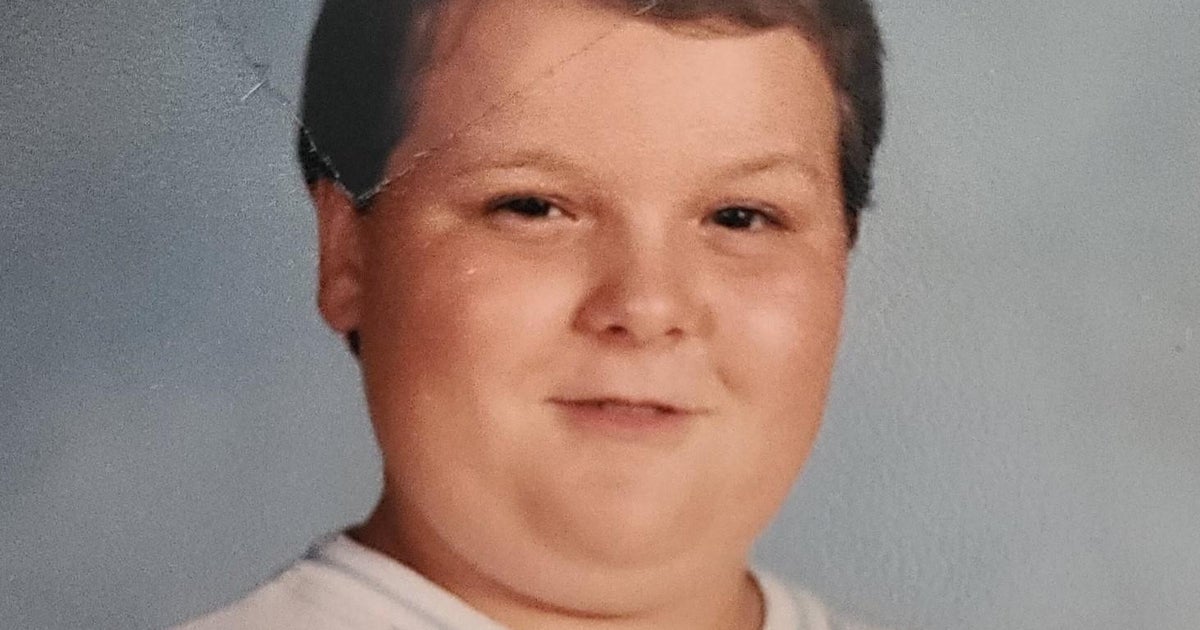

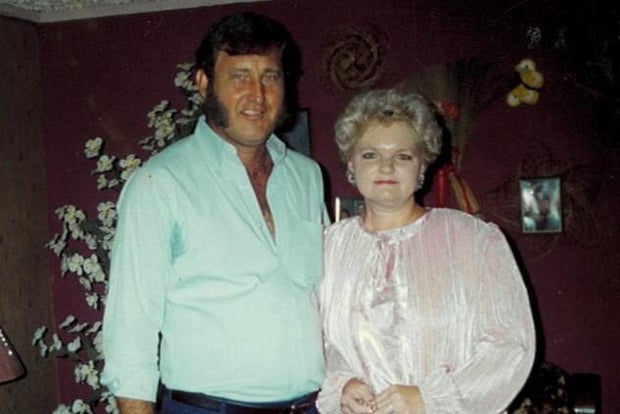
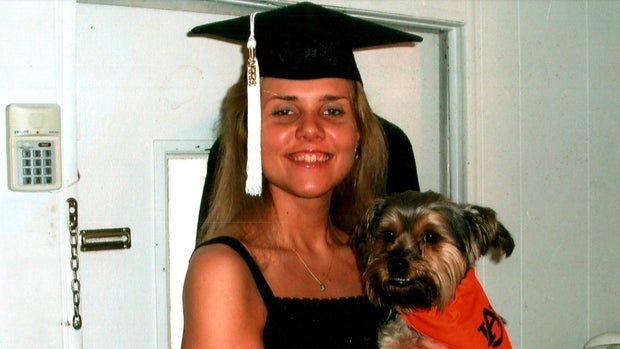
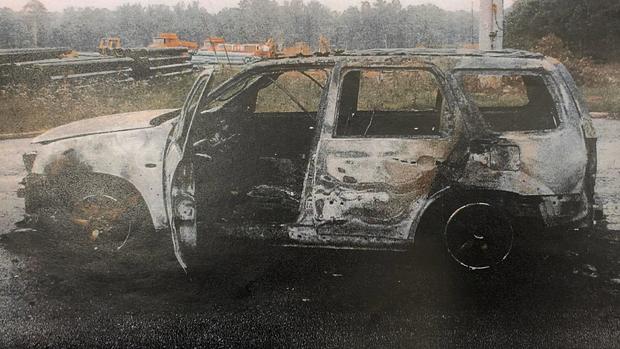
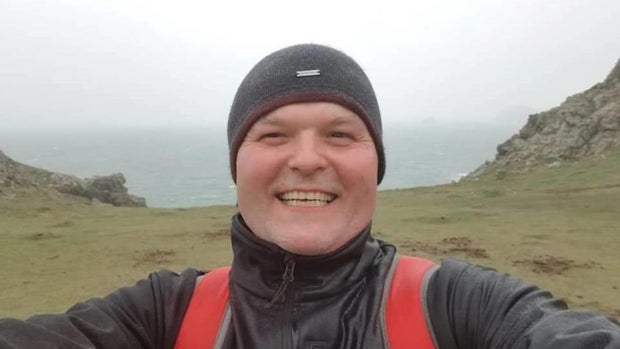



.png)


Discussion about this post